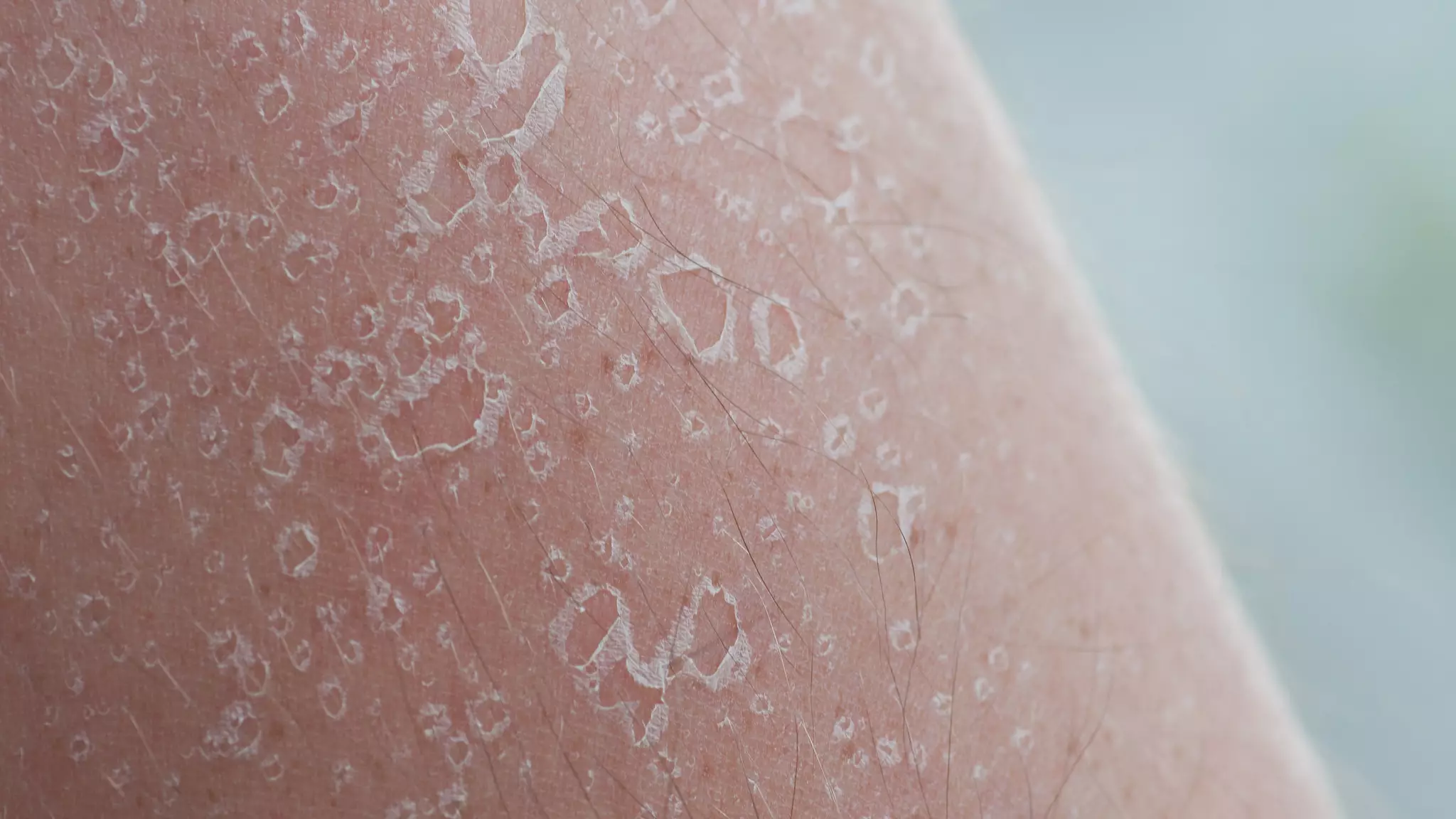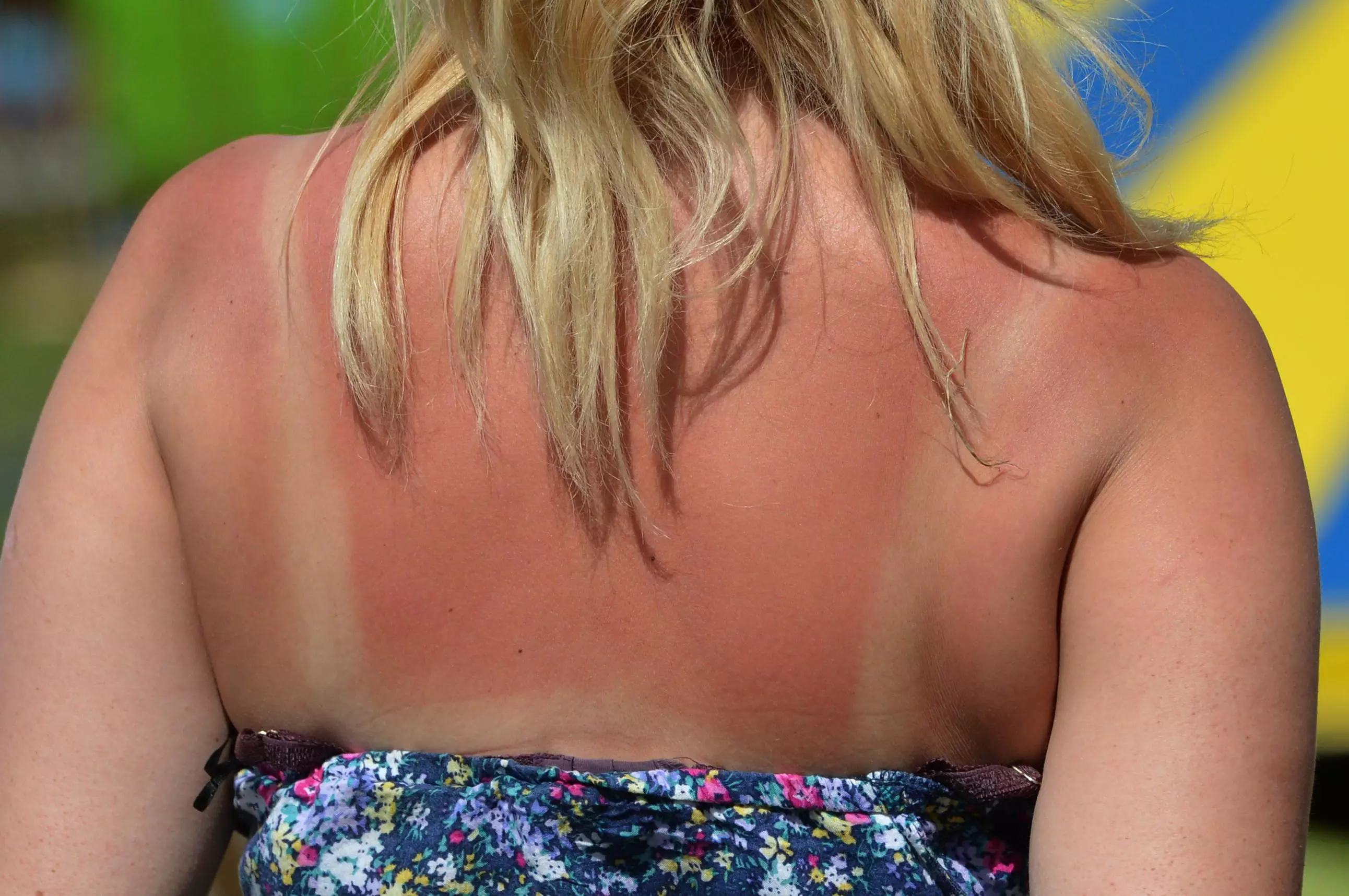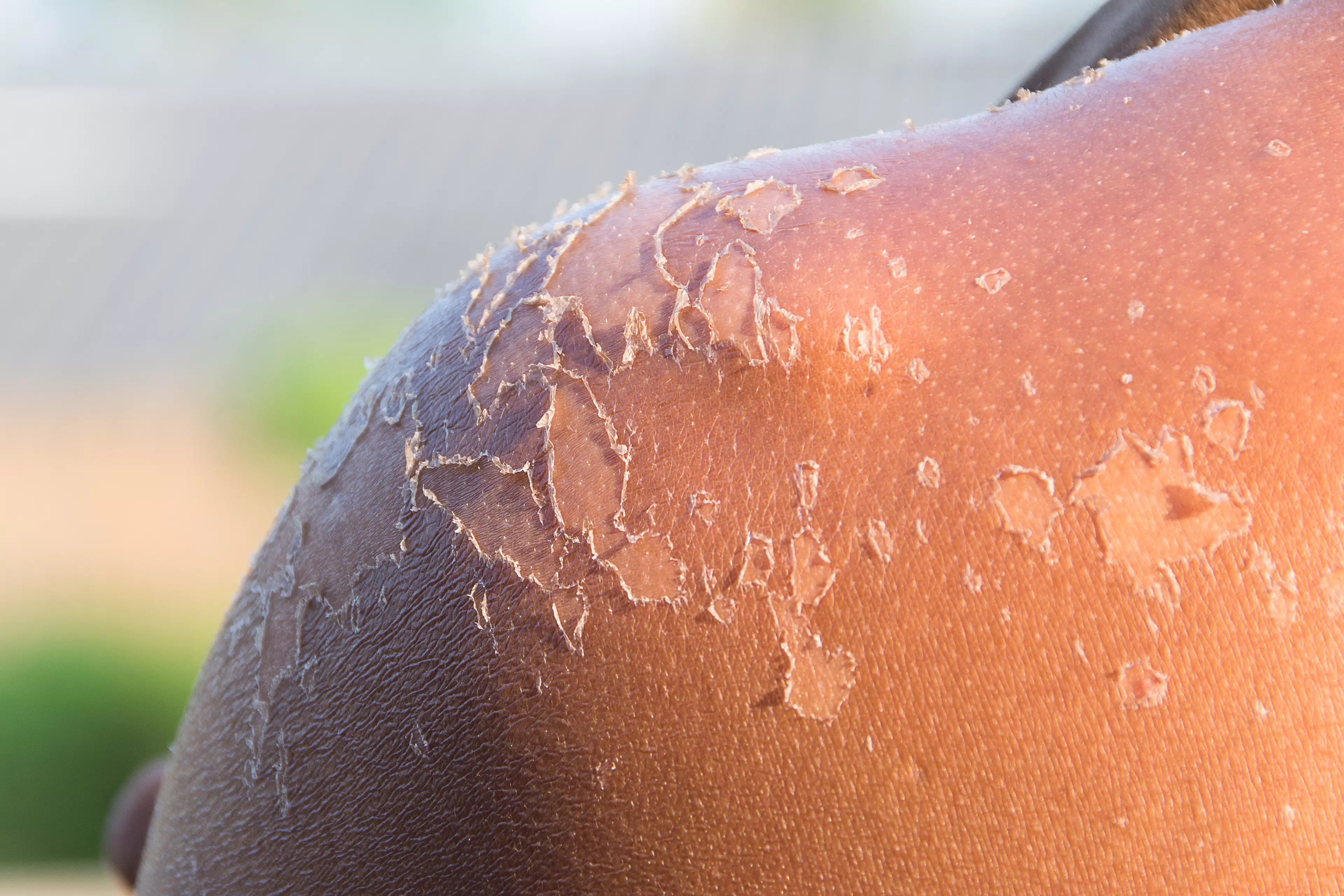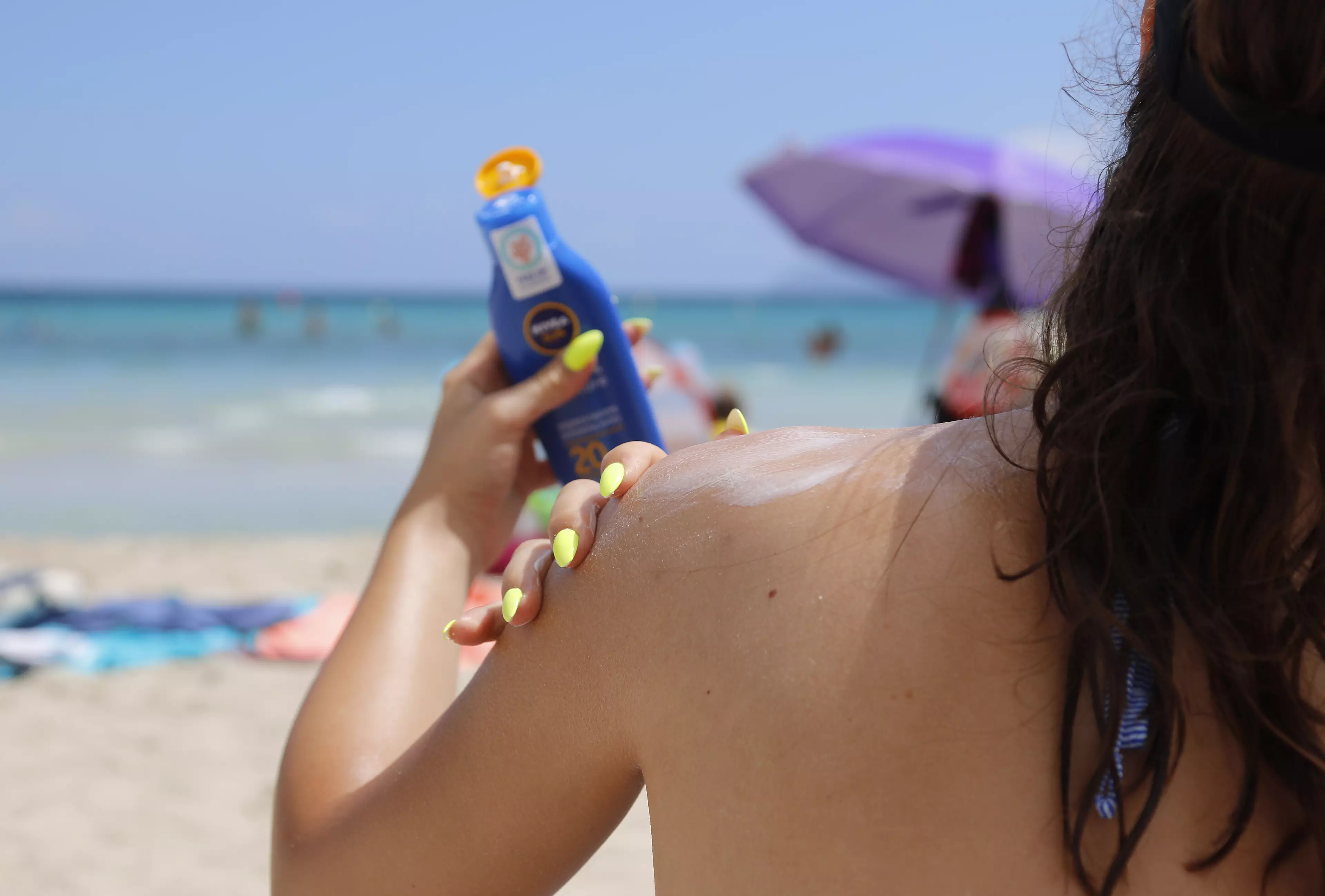
For all too many of us, the arrival of sunnier weather also marks the return of some seriously dodgy sunburn - and, worse still, peeling skin.
After months of being in lockdown, we're all desperate to be outside as much as possible, but with our newfound freedom also comes some disastrous effects on our skin.
Of course, the best way to avoid peeling is to prevent sunburn altogether - which means plenty of sun cream applied throughout the day and staying out of direct sunlight during peak times.
Advert
However, if this advice comes a little too late for you, there are still things you can do to help yourself.
While there's not much you can do to stop peeling happening once the damage is done, you can help repair the skin that remains.

Speaking to Prevention last year, Samantha Conrad MD - a board-certified dermatologist at the Northwestern Memorial Hospital in Chicago - said: "Keeping skin hydrated and protected can minimize the amount of noticeable dead skin.
Advert
"It will also minimize the itch and irritation."
This not only means keeping your skin as moisturised as possible, but also drinking plenty of water yourself.
Board-certified dermatologist Joshua Zeichner MD - director of cosmetic and clinical research in dermatology at Mount Sinai Hospital in New York City - added: "A healthy skin barrier can help repair itself the best it can. A sunburn disrupts that barrier, leading to loss of hydration and inflammation.
"Use hydrating cleansers and moisturizers, like Dove Deep Moisture Body Wash and Vaseline Clinical Care Extremely Dry Rescue Lotion, to keep the skin in as good shape as possible."
Advert
Zeicher explained that if skin peels, there is generally 'a greater degree of damage'.
He advised that it's important not to pick or pull at peeling flakes of skin, while popping any blisters is also a no-go as they're your skin's way of protecting you.

Advert
"Peeling the skin can be gratifying as you see the flakes disappear-very much like the satisfaction people get from picking pimples," he continued.
"But it can further disrupt the skin barrier, leading to open, raw skin and increasing your risk of an infection."
While it may be tempting to speed up the unsightly process by exfoliating, experts say this is a bad idea.
Natalie Curcio, MD, MPH, FAAD - a board-certified dermatologist practicing in Nashville - told SkinCancer.org: "Do not pull off your peeling skin, and avoid active exfoliation.
Advert
"Instead, allow it to slough off your body on its own. Peeling usually stops when the burn has healed - about seven days for mild to moderate burns."

She also warned that after sunburn, skin is 'more sensitive' to additional UV damage.
"Wear protective clothing that covers your skin when outdoors," she said, also warning that people should avoid peak hours in the sunshine.
Sun safety tips from the NHS also include:
- spend time in the shade between 11am and 3pm
- make sure you never burn
- cover up with suitable clothing and sunglasses
- take extra care with children
- use at least factor 30 sunscreen
Find out more information via the NHS website here.
Featured Image Credit: Flickr/srslyguys
Topics: World News, News, Health